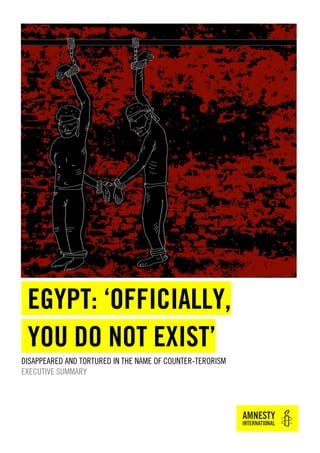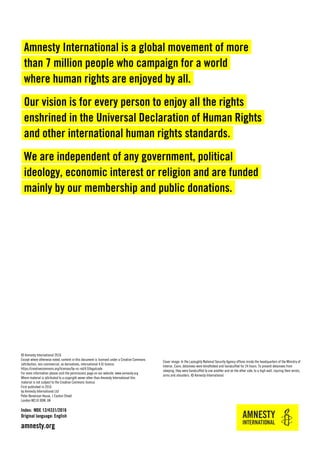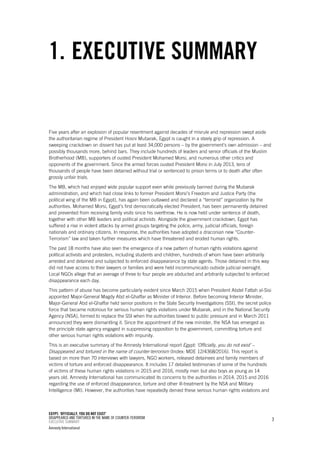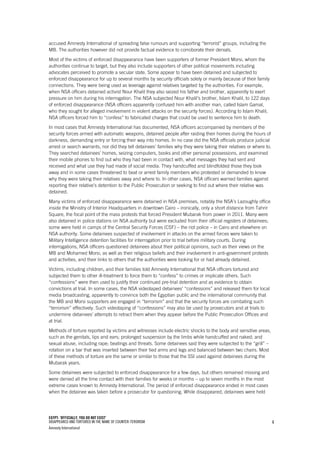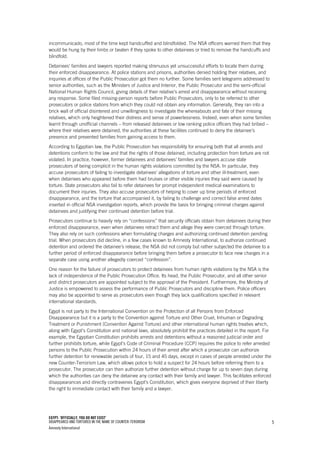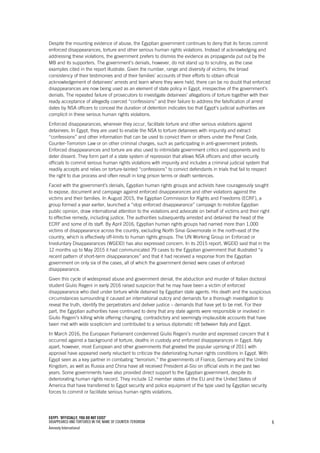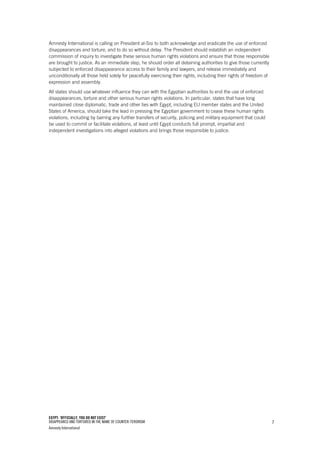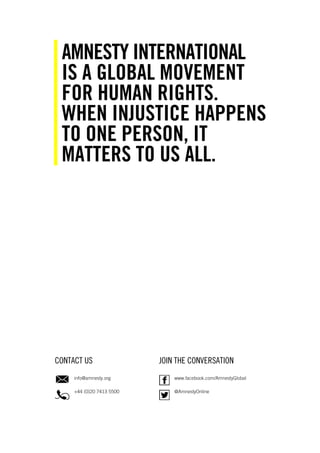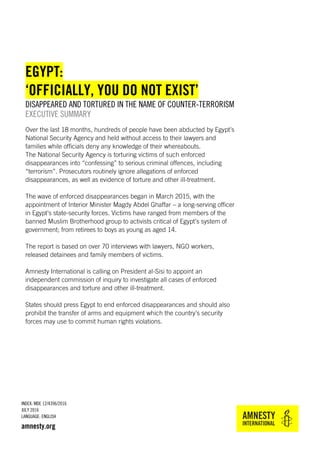1. The report documents cases of enforced disappearance, torture, and ill-treatment of political activists and protesters in Egypt by the National Security Agency (NSA) since 2015. Victims were detained without charge for weeks or months and denied contact with families or lawyers.
2. Methods of torture included electric shocks, beatings, suspension by the limbs, sexual abuse, and forcing detainees to falsely confess or implicate others. Prosecutors failed to investigate torture allegations and relied on coerced confessions.
3. Enforced disappearances are being used as a policy to extract confessions, intimidate dissent, and commit human rights violations with impunity. Despite evidence, the government denies the violations and acc
